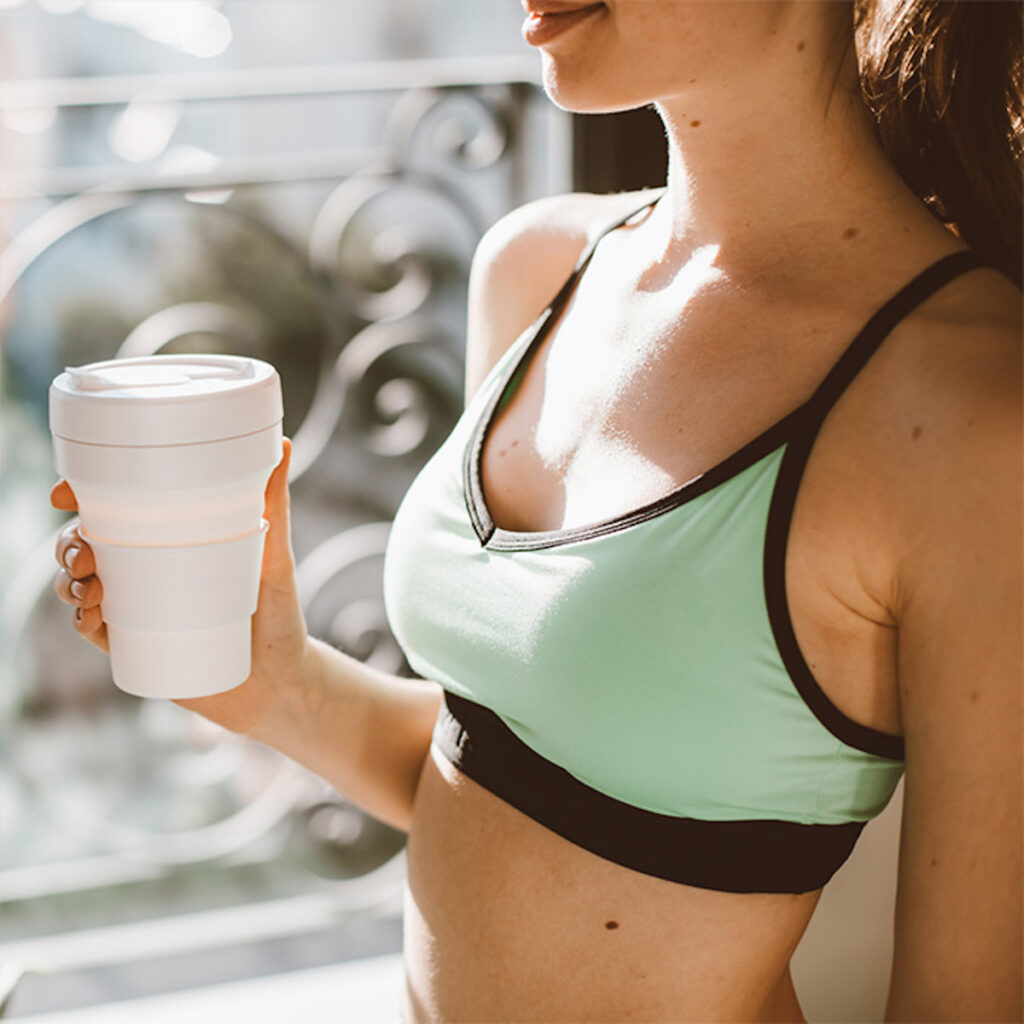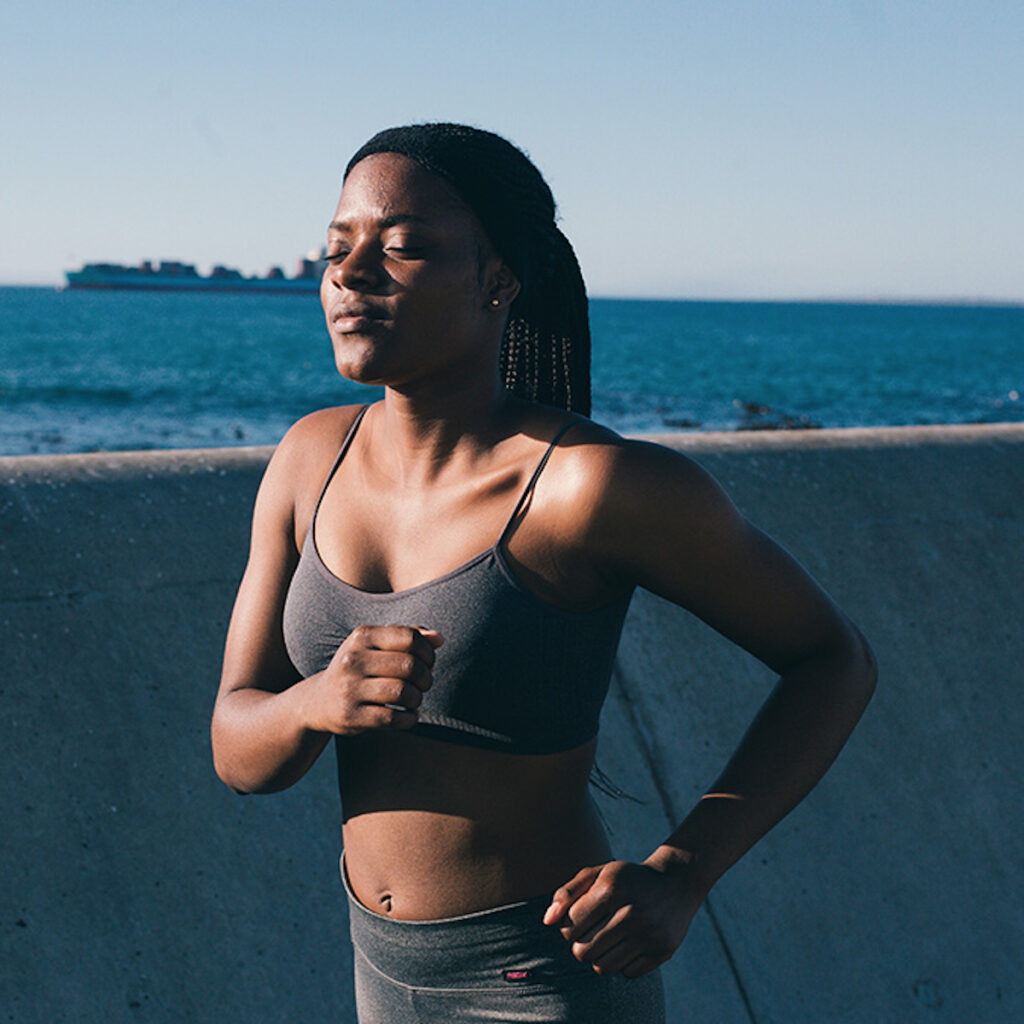Can you drink coffee before working out? That’s a question we’ve probably all asked ourselves at least once in our lives, right?

Increase your performance drinking coffee before a workout
Although too much coffee in general (or better said, too many mg of caffeine) can have negative side effects, drinking coffee before a workout might be a good option for you.
Why?
If you like to drink coffee before a workout but you’re concerned it might have a detrimental effect on your workout performance, fear not! That morning cup of joe is helping you in more ways than you may realize.
In this article, we’ll help you decipher important concerns regarding drinking coffee before exercising: how many cups of coffee to drink, what studies from expert sports nutritionists say, and even what is the best time of day to drink it. If this information is important to you, keep reading!
Sports medicine studies show caffeine helps exercise performance
The main ingredient in coffee that contributes to your workout routine is caffeine. Recent studies show that it may have a number of ergogenic effects including physical performance, mental focus, and even an extra boost to your energy levels.
If weight loss is a goal, you’ll be interested to know that caffeine also acts as a mild appetite suppressant. There are only 2-5 calories in an 8 ounce black cup of coffee. When we are talking about coffee as an energy source, it’s from the stimulatory effects of caffeine on the central nervous system, not as a calorie-laden fuel source like fats, carbs and proteins.
When do the effects of caffeine peak?
The best time to squeeze the most out of the benefits of coffee is a half hour before your training session.

Caffeine’s effect peaks after about 30 minutes of consumption but it can linger in the body for 5-6 hours.
High amounts of caffeine can cause negative side effects too
These are the most common negative effects you may feel when drinking medium to high amounts of coffee:
- dehydration – caffeine acts as a diuretic to make you urinate more
- increased reflux symptoms or upset stomach from increased stomach acid production
- increased heart rate – which in turn elevates blood pressure
- addictive
How much caffeine is too much?
Whether the side effects are positive or negative depends a great deal on an individual’s unique metabolism and health status, if they are taking other medications, etc.
Some people like the feeling of an ‘adrenaline rush’, others find it serves only to make them feel anxious or contribute to panic attacks. So even though caffeine is acting in the same way for both situations, the way our bodies react to it or how our mind interprets the feelings are different. What is too much coffee for me may not be too much for you.
It’s also important to note that while there is no evidence of caffeine causing heart problems, people who already have certain heart conditions should avoid caffeine.
If you have any questions or concerns about caffeine affecting your health, be sure and consult your doctor.
Know your caffeine intake
You can find exactly how many milligrams of caffeine you are getting by reading the nutrition facts label.

Remember you need to take into consideration different factors, such as your height, weight, age, and more. Consult your physician if you have any more questions.
Caffeine is a natural stimulant
Most workout supplements have some amount of caffeine content, though it may be disguised by terms like ‘kola nut extract’. This is why it’s a good idea to read the label and look up any ingredients you don’t recognize.
Here are the most common natural sources of caffeine:
- coffee beans – seeds from the fruit of the coffea arabica plant that are dried and roasted before brewing.
- tea leaves – dried, ground leaves from the camellia sinensis plant.
- kola nuts – original source of the ‘cola’ flavor (and caffeine) in cola drinks.
- yerba mate – an herb often brewed like tea.
- cacao beans – the source of chocolate!
- guarana beans – seeds from a plant found in the Amazon that contain four times the amount of caffeine as coffee beans.
What are the benefits of drinking coffee before a workout?

Drinking coffee before a workout may:
- enhance your physical performance – in particular, it affects muscle strength, endurance, and cardiovascular abilities.
- increase the amount of fat you burn – coffee helps people feel more alert or awake, but it also improves athletic performance, as it helps with energy levels and prevents fatigue.
- boost your cognitive function – some research shows that caffeine increases fat oxidation, but how much is still unclear.
Common caffeinated drinks
Looking to add a dose of caffeine to your morning routine but not a big coffee fan? Here’s a list of other caffeinated beverages that can also serve as your workout drink:
- tea – though there is such a thing as decaf tea, and many herbal ‘teas’ that don’t use caffeine-containing tea leaves.
- caffeinated energy drinks – are often regarded as synonymous with caffeine intake but not all of them actually contain caffeine
- sports and energy drinks – not all of them but read the label to know for sure what you’re drinking.
- soft drinks – particularly colas, but check the nutrition facts section to see if it lists caffeine.
- hot chocolate – not much, around 5 mg per serving, but it’s there.
- caffeinated water – yes, it’s a thing!
Though of course, we think the best way to get our daily dose of caffeine is with our workout coffee, there are also pure caffeine supplements. They just aren’t as tasty!
